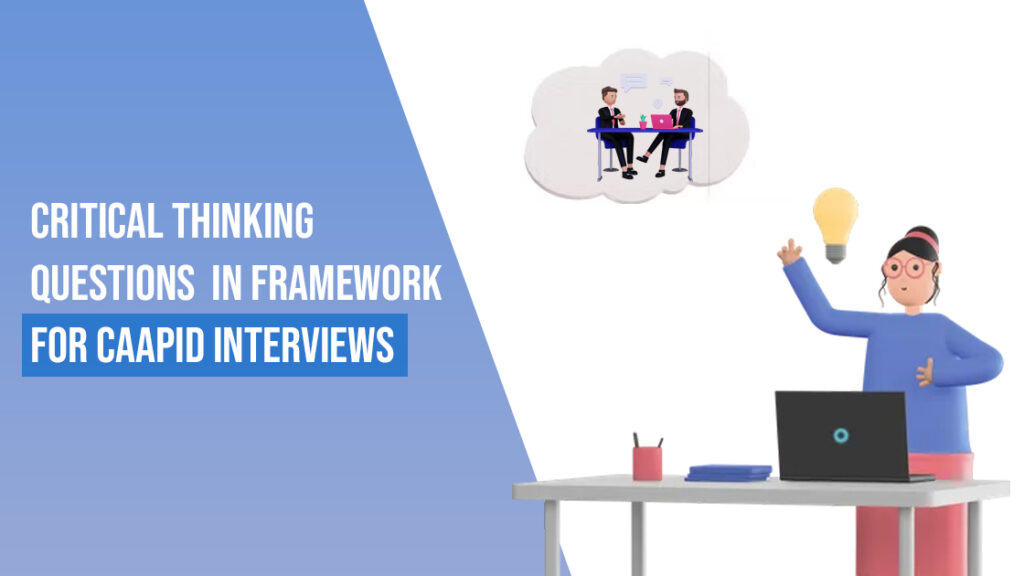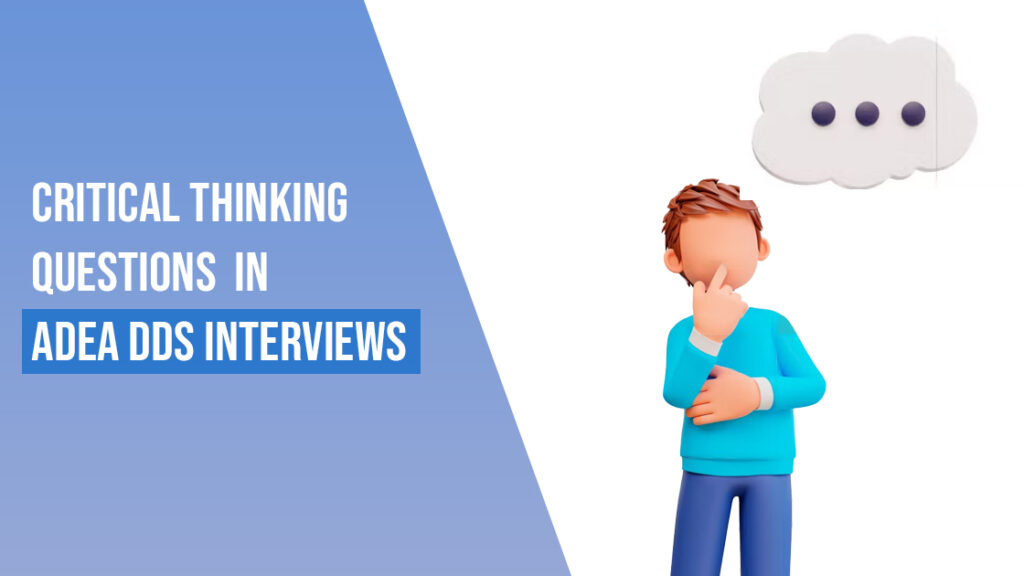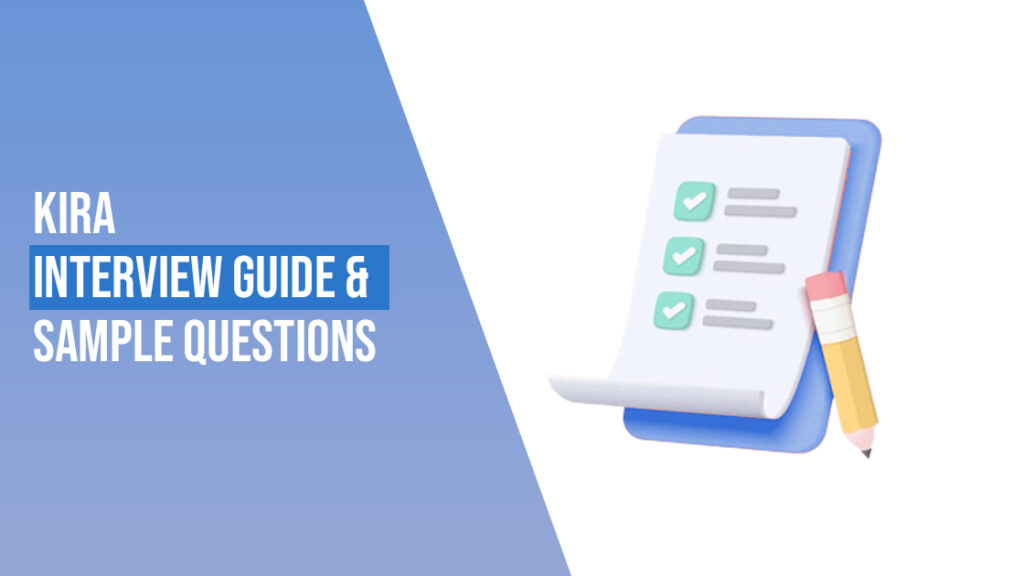Have you encountered questions in an interview or while reviewing an dental interview question guide like this –
- Tell me about a time when you had to motivate a team
- Describe an experience when you’ve led a team to get something done
- Have you worked with diverse people on a common task
- How do you manage conflict amongst your team members?
- What kind of a leader are you?
- Were you in a situation where you had to align a team to achieve a difficult goal?
For sure right?
All of these questions are testing but one thing – your leadership ability, skills, or traits. They wish to know if you have the ability to polarise distinct forces, align common goals and facilitate discussion.
While the question and its answering strategy are pretty straightforward, many international students actually struggle with answering it.
Why? Here are a couple of reasons we’ve heard –
- “I’m still very young and I haven’t really managed people under me”
- “I have led a team of juniors in BDS in a college fest. But interviewers aren’t impressed by that answer”
- “I worked only in private practices and haven’t had to manage a team, rather only assist my lead dentist”
- “I was asked to organize a team of volunteers for flood relief. I’m not sure if such a scenario can be used to explain leadership in a professional setting”
- “They asked me a question about leading people older than me. I don’t get that opportunity in Iran, where it’s all patriarchal”
If you relate to one of these experiences, go on.
If you have an answer in mind in spite of these constraints, still go on!
Let’s break down a method to answer any leadership-based question in an interview. The examples given here are specific to DDS but are in fact agnostic to any disciple within medicine and their respective interviews. We’ll approach the question by discussing its various aspects and then give an example answer to round it all up.

Dental Interview Questions: Leadership
Aspect 1: Leadership isn’t a personality; it is a skill
Coming from India, Nourah and I were subjected to viewing leaders as people older than us, who were experts at what the team had to do and earned everyone’s respect and confidence. They would stand in front, on a podium, give directions and delegate work. They at least almost knew what to do, how to handle people, and had the resources or connections to get it done. They were humble despite power, patient despite packed schedules, and forgiving despite mishaps. They praised their teams for success and owned the blame for falls. They were either rich by wealth or people.
Having come from such a background, we found it difficult to be able to look at ourselves as leaders. We assumed the only way we could showcase our leadership skills would be to do what the people above did but on a smaller scale. Manage 10 instead of a nation! We were wrong.
Leadership is a skill, not a personality. Therefore, it doesn’t matter how big or small your effort was. It doesn’t matter how old or young you are in the room. It doesn’t matter whether your team considered you their boss or servant. It didn’t matter if you had a solution to all the problems.
So, what does matter?
- The ability to facilitate discussion
- The ability to help a team reach a consensus
- The ability to align people around a common vision
- The ability to listen and get people to contribute (ideas or actions)
- The ability to utilize every member’s expertise, rather than be an expert
- The ability to motivate people to meet deadlines
- The ability to identify potential in teammates and tap into it
- The ability to foster collaboration
- The ability to envision risk, while the team builds the strategy
- The ability to coach and provide constructive criticism
- The ability to mentor and learn from your teammates
- The ability to get people to expedite tasks when they slack
Can you see a pattern here?
None of these points speak about what position you hold in the team. None of them talk about the oft-quoted phrase ‘lead by example’. None of them expect you to be the ‘go-to-person’, ‘subject-matter expert’, or ‘problem-solver’. None of it expects your team size to be 2 or 200.
I hope by now you get the point. From the ‘abilities’ listed above, just think of the 3 most important points that matter to you. Craft your answer around that and use it in your interview. To see how, keep reading further.
Aspect 2: Leadership isn’t a hierarchy in America
Big one. We use the word synonymous with captain, principal, political head, and the like. Not just, so does Oxford Merriam. But therein lies the problem. From the skills mentioned earlier in this article, we saw that leadership is devoid of position or power.
A big flaw that most international students make in their answers is to associate their leadership answer with words like ‘command’, ‘authority’, ‘informed’, ‘led’, and ‘managed’.
Here in US colleges, we view things differently. Higher education is not something you do right after undergrad here. People from not just different age brackets, but also different work cultures and belief systems come here. Your fellow faculty, research assistant, library manager, dental assistant, and colleague can be looking up to your expertise in some specialty. No one is paying or reporting to anyone.
The problem with conventional leadership is its inability to adapt to such a mix of people. You need a different set of skills to hold together heterogeneous personalities with different life goals. In the US dental school or dental office, people organize themselves together by task or activity, rather than purpose and reason. This requires some team members with the skills to handle these dynamics and coordinate among members.
Are you that person?
Some ways that you can apply these in your interview answers is to –
- replace manage with coordinate
- replace delegate with facilitate
- replace influence with developing consensus
- replace authority with assertiveness
- replace giving autonomy to holding accountability
- replace persuasion with motivation
- replace ‘giving’ work to schedule
- replace handling people with seeking alignment
If you can change any of your perceptions of leadership in the context of the US, you would be able to not just nail questions related to leadership, but even ones related to collaboration as well.
Show them how you worked with the care team in the dental office, and they will see why they should take you into the program.
Aspect 3: How to develop your answer?
Almost all behavioral answers that fall under ‘fit’ based questions can be answered using the PAR methodology. PAR stands for Problem-Action-Result. More on PAR methodology in another article.
Problem:
Think of any experience that you might have had working with a team. This can be some dental camp, some cultural event, some college event, some external initiative, research project, or a case involving different members of your dental care team.
First state the task, then state a conflict/problem/constraint –
“When I was working as a dental assistant in a clinic in NY, we came across a patient who had language barriers and only could speak in Spanish”
OR “We all had a group project in our final year. We were 5 students and 1 mentor-faculty who had to collaborate and present a case on maxillofacial surgery as an internship project. The 4 days and competition for 21 teams broke the resolve of my team”
Notice – “Task/Situation” + “Problem/Barrier”
Action:
This is where you describe the key activities that you did you help your team overcome the problem and emerge successful against the goal of the task. You can tap into the bullets in the two aspects mentioned above. Choose ONLY 3 of them and say it here.
“I had to quickly figure out which members of our care team knew sparse Spanish from movies and community lingo. I convinced our inventory manager to converse with the patient for 5 minutes until he felt comfortable. I sought permission from our lead dentist to explain my reasons to prioritize patient comfort over fearing misinformation. I requested 3 care-team members to use Google translator and print Latin American patient pages of the insurance treatment plan coverage”
OR “I first tried to gather our mentor’s perspective on being realistic about completion in 4 days. After confirming this, I dug through the competition archives to find evidence of successful teams presenting moderate content in the competition. I persuaded my team to at least attempt to complete the presentation at hand and then give up altogether. I reminded them of the shared vision we had while applying to this contest and took on the mantle of scheduling tasks for everyone based on their unique strengths.”
Result – Oft ignored or misstated!
When dental applicants hear this – they immediately mention something like “We won that contest” or “Treated that patient successfully”. Shocking sometimes is when they state things like “We got patient to quit smoking after our tobacco awareness camp.” Haha. This is exactly what your interviewers aren’t expecting.
Yes, it’s true that results matter more than attempts. But every result doesn’t have to be akin to something that’s measurable. At least in Asian countries, we assume that clearing the exam, winning the contest, or completing a set task is the only thing that matters, thanks to population-induced competition. In that race, we sometimes tend to miss out on the other beautiful things we achieved in the process.
Try to there, therefore, think of what the team achieved, not what the team won.
“My team at first thought it was a hassle to go over and above for a patient. They, however, watched me take the initiative and ask for their help. They silently agreed to work and came across a patient case that would be so enriching a learning experience for all of them. They voted for me to lead an initiative with their help to develop an SOP for clinic operations when non-English speaking patients would visit the clinic”
OR “My team initially agreed to get back on task and at least participate. After a day’s work, when they saw how far they could get, the visibility and recognition motivated them to not just participate, but aim higher. The allocated delegation duties since I was good with big-picture thinking and holding them accountable to deadlines. Eventually, we lost the contest but became a power team to improve visibility for our college’s brand in the big league conferences.”
In summary,
Use PAR methodology. Remember leadership is s skill, not a role, and finally, American schools want a team orchestrator; not a manager.
Find more behavioral questions answered here.
Keep spreading the love,
Dr. Nourah and Karthik


